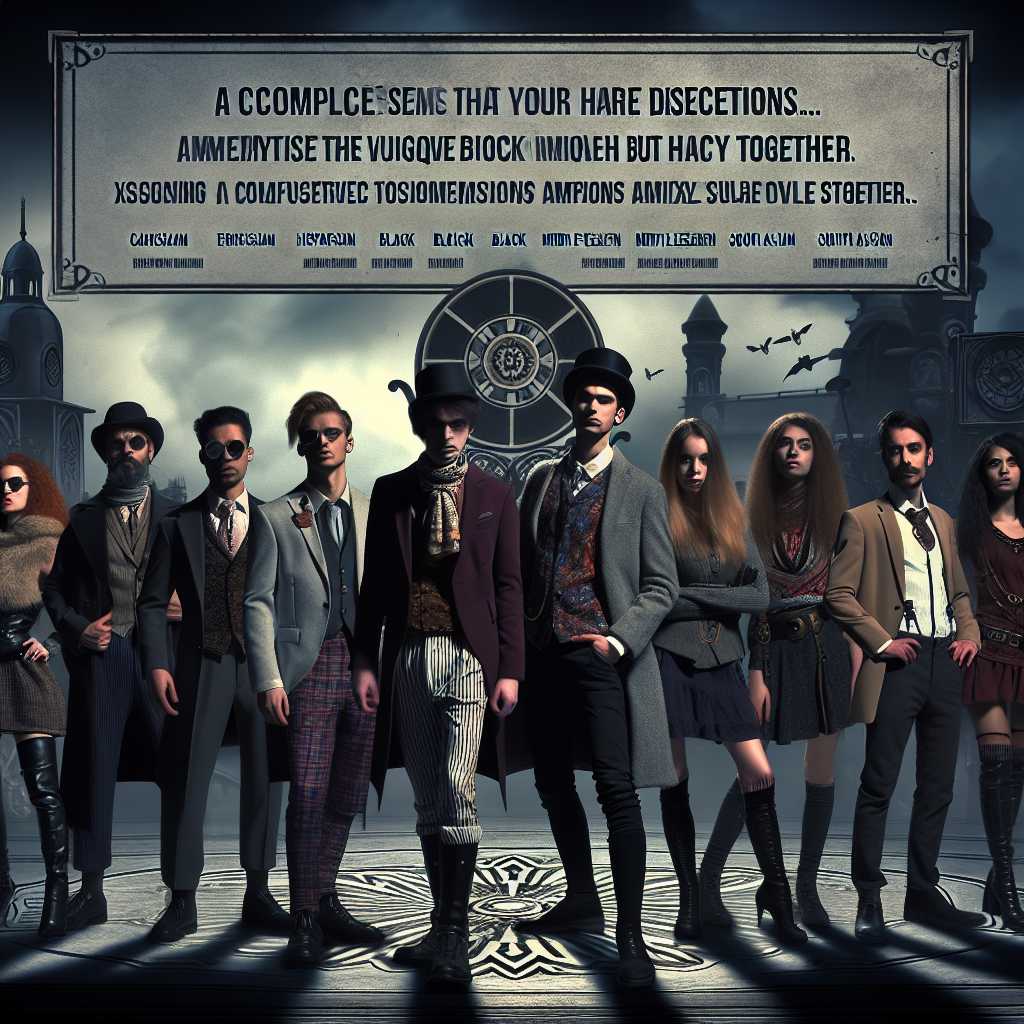The Enigmatic World of The Umbrella Academy: A Dive into the Series’ Innovations and Legacy
The Umbrella Academy has managed to carve out its unique space in the crowded world of superhero narratives. From its roots as a graphic novel to its adaptation into a successful Netflix series, The Umbrella Academy offers a fresh take on the superhero genre, merging family drama with the complexities of time travel and apocalyptic scenarios. This article takes an expansive look at the series, including its origins, characters, thematic explorations, and the impact it has had on popular culture.
Origins and Creation of The Umbrella Academy
The Birth of a Dark Horse Comic: Gerard Way’s Vision Takes Shape
The Umbrella Academy first took shape within the pages of a Dark Horse comic created by Gerard Way, the frontman for My Chemical Romance, and illustrated by Gabriel Bá. Launched in 2007, the series quickly earned critical acclaim for its inventive storytelling and dynamic artwork. Way’s love for the peculiar aspects of superhero tales shone through The Umbrella Academy’s offbeat tone, satirical edge, and the deep emotional undercurrent that runs beneath its many layers.
Unconventional Heroes and an Eclectic Narrative: Setting The Umbrella Academy Apart
Unlike many mainstream superheroes who are often shaped by widespread social concerns or direct instances of legendary heroism, The Umbrella Academy’s characters are a dysfunctional family raised not out of altruism but for their adoptive father’s vested interests to harness their abilities to save the world. This departure created a more complex and emotionally intricate landscape for heroism.
Adapting Ink to Screen: Netflix’s Version Amplifies Appeal
The transition from comic book to screen with Netflix’s adaptation in 2019 broadened The Umbrella Academy’s audience. Developed by Steve Blackman and Jeremy Slater, the live-action series incorporated essences from the source material but introduced new elements and narrative expansions, enhancing both character depth and thematic resonance.
An Overview of Key Characters and Their Powers
The Hargreeves Children: Defining Identities Through Supernatural Abilities
At the crux of The Umbrella Academy is the Hargreeves family, consisting of seven adopted siblings – each with unique powers. Their numeric designations were given by their distant adoptive father Sir Reginald Hargreeves. These include Number One Luther’s super strength, Number Two Diego’s trajectory manipulation, Number Three Allison’s power of persuasion, Number Four Klaus’s ability to communicate with the dead, Number Five’s time-traveling capabilities, Number Six Ben’s control over monstrous entities from other dimensions, and Number Seven Vanya who initially appears powerless but later is revealed to have destructive sound manipulation abilities.
Recurring Characters and Antagonists: Foils to The Hargreeves’ Mission
Supporting characters such as Pogo, the talking chimpanzee assistant to Sir Reginald Hargreeves, or antagonists like The Handler provide additional layers to the plot. Simultaneously allies and villains alike bring forward various stakes across timelines inducing further complexity in each season.
Thematic Explorations in The Umbrella Academy
Family Dynamics and Personal Trauma: A Core Narrative Element
At its core, The Umbrella Academy juggles themes related to familial bonds, personal trauma, self-identity, and the burden of expectations. Each sibling embodies their individual coping mechanisms resulting from their overbearing father’s training methods Rigorous conditions during their upbringing create past traumas that spill over into their adult lives affecting not just societal interactions but also their capabilities as individuals with superpowers.
Destiny and Choice: Crucibles to Character Development
Alongside personal struggles are grand narratives concerning destiny versus choice. Throughout multiple seasons, plotlines debate predeterminism against free will—a fitting philosophical question for characters engaged in a ceaseless battle against an impending apocalypse.
Pop Cultural Impact of The Umbrella Academy
The Intersection of Music and Narrative: A Symbiotic Relationship with Pop Culture
Besides narrative elements, The Umbrella Academy exuberantly taps into popular culture. Gerard Way’s musical background bleeds into both comic pages and screen yielding poignant moments that tether character development to accompanying soundtracks—a narrative technique that enhances personable connections without suggesting overdoses of idealistic heroism or explicit moral takeaways.
Influence on Superhero Tropes and Renewed Storytelling Formats
Owing to its success in bending the traditional concept of superheroes, The Umbrella Academy signifies change – that graphic novels afford innovative storytelling that can successfully transmute into serial formats without losing complexity or audience engagement. It strikes a balance between catering to longtime fans of superhero lore while still appealing to viewers unacquainted with comic book sagas—proving there’s ample room for diversity in representation and story mechanics within this genre.
Notes
Image description: A promotional poster for The Umbrella Academy featuring its main characters standing in offbeat Dressed distinctively costumes behind moody gather together suggestive stage appear much backed classic is posing gallantly amidst dark clouds ominous atmosphere setting Interactions depict ensemble their complicated dynamics close-knit yet troubled relationship collective mission facing them.
